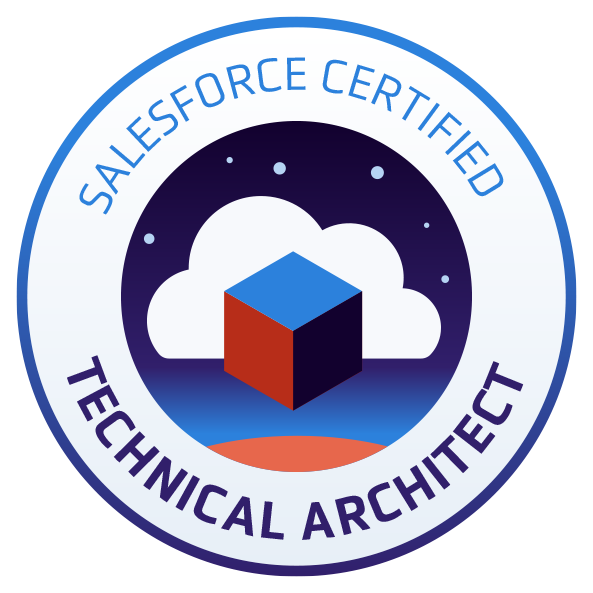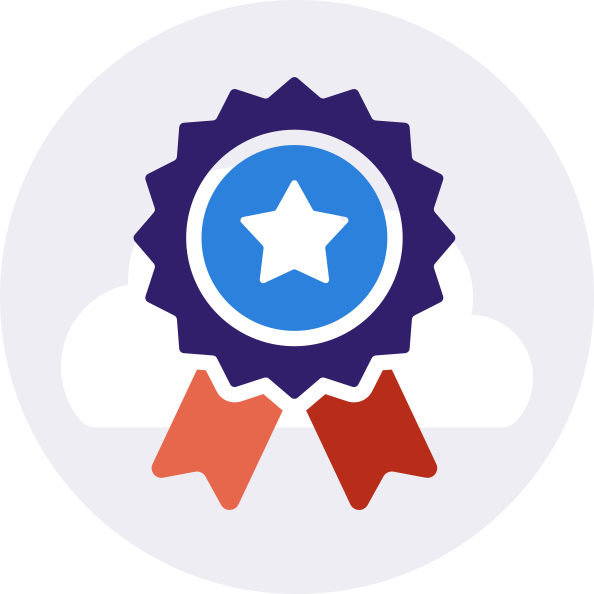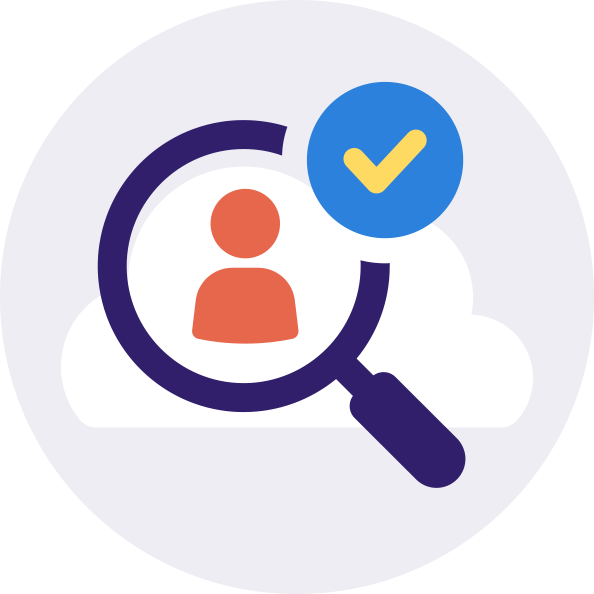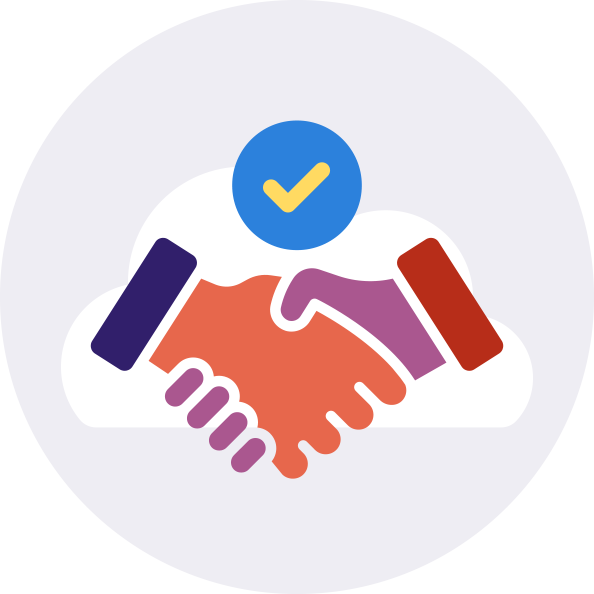
Career Spotlights
Salesforce
Technical Architect
How much do Technical Architects make?
What factors impact your earning potential as a Technical Architect?
| Important | Neutral | Unimportant | |
|---|---|---|---|
| Years of experience in IT | 100% | 0% | 0% |
| Years of technical experience with Salesforce | 100% | 0% | 0% |
| Exposure to large projects | 94% | 0% | 6% |
| Salesforce certifications | 88% | 13% | 0% |
|
Becoming a Salesforce product specialist (e.g. working with Salesforce Industries [Vlocity], CPQ, FSL, Sales and Service Cloud) |
88% | 13% | 0% |
| College/University degree(s) | 75% | 25% | 0% |
| Specific vertical industry experience | 67% | 27% | 7% |
| Working with AI | 47% | 33% | 20% |
Years of experience in IT
| Important | Neutral | Unimportant |
|---|---|---|
| 100% | 0% | 0% |
Years of technical experience with Salesforce
| Important | Neutral | Unimportant |
|---|---|---|
| 100% | 0% | 0% |
Exposure to large projects
| Important | Neutral | Unimportant |
|---|---|---|
| 94% | 0% | 6% |
Salesforce certifications
| Important | Neutral | Unimportant |
|---|---|---|
| 88% | 13% | 0% |
Becoming a Salesforce product specialist (e.g. working with Salesforce Industries [Vlocity], CPQ, FSL, Sales and Service Cloud)
| Satisfied | Neutral | Dissatisfied |
|---|---|---|
| 88% | 13% | 0% |
College/University degree(s)
| Important | Neutral | Unimportant |
|---|---|---|
| 75% | 25% | 0% |
Specific vertical industry experience
| Important | Neutral | Unimportant |
|---|---|---|
| 67% | 27% | 7% |
Working with AI
| Important | Neutral | Unimportant |
|---|---|---|
| 47% | 33% | 20% |
What steps should you take to become a Technical Architect?


Education
In terms of qualifications, all of the Technical Architects who took our survey hold at least a Bachelor’s degree. However, only 75% consider a degree to be an important factor when it comes to increasing earning potential, while 50% believe that a degree to be important to work with Salesforce.


Certification
All of the Technical Architects who answered our survey are certified, and 81% of those respondents believe that certifications help candidates stand out in a competitive job market.
There are many certifications you can earn on your journey as a Technical Architect—you can see them all outlined in the table below—all of which you’ll need to have gained before you can become a Certified Technical Architect.
The Salesforce Certified Technical Architect certification is the most prestigious and challenging Salesforce badge. Unlike other certifications, the CTA doesn’t involve a traditional exam. Instead, candidates must complete all Domain Architect certifications and undergo a rigorous peer review process to demonstrate their mastery of Salesforce architecture.
Achieving the CTA requires a deep understanding of the platform, extensive hands-on experience, and a proven ability to design and implement complex Salesforce solutions.
To be eligible for the CTA certification, you must hold both the System Architect and Application Architect certifications. These prerequisite certifications validate your foundational knowledge of Salesforce architecture and development.
You must then go through an Architect Review Board Evaluation; a written evaluation where you submit a detailed document outlining your experience and expertise in Salesforce architecture. You’ll be assessed on your ability to design and implement complex Salesforce solutions, your understanding of the platform’s capabilities, and your problem-solving skills.
Finally, you’ll sit the Architect Review Board Exam, which is a rigorous, in-person or online exam that assesses your ability to apply architectural principles to real-world scenarios. During the exam, you’ll be presented with complex business requirements and expected to design and present a comprehensive Salesforce solution.
What Salesforce certifications do Technical Architects hold?
Roles that can lead on to becoming a Technical Architect
Here are a few of the job roles we see leading to a career as a Technical Architect:
- Salesforce Developer
- Systems Administrator
- Software Engineer
- Java Developer
What skills and experience should a Technical Architect have?
Technical skills for Salesforce Technical Architects
- Deep platform expertise: Comprehensive understanding of Salesforce core modules, features, and limitations
- Apex and Visualforce: Advanced proficiency in Salesforce's programming language and UI framework
- Lightning Web Components: Expert-level knowledge for building complex UI components
- SOQL and SOSL: Mastery of query languages for efficient data retrieval
- Data architecture: Ability to design scalable and performant data models
- Integration architecture: Expertise in integrating Salesforce with various systems using APIs, middleware, and ETL tools
- Security architecture: In-depth understanding of Salesforce security model and best practices for data protection
- Performance optimization: Ability to identify and resolve performance bottlenecks
- Scalability and high availability: Knowledge of designing solutions for large-scale deployments
- Cloud computing: Understanding of cloud computing concepts and platforms (eg, AWS, Azure)
- Data management: Proficiency in data management tools and techniques
- Deployment and release management: Expertise in deployment strategies and tools
Soft skills for Salesforce Technical Architects
- Strategic thinking: Ability to envision long-term IT solutions aligned with business goals
- Leadership: Ability to guide and mentor technical teams
- Communication: Effective communication with both technical and non-technical stakeholders
- Problem solving: Strong analytical and problem-solving skills for complex challenges
- Business acumen: Understanding of business processes and how technology can drive value
- Change management: Ability to manage organizational change and adoption of new technologies
- Presentation skills: Effective communication of complex technical concepts to diverse audiences
- Negotiation: Ability to balance competing priorities and reach consensus among stakeholders
- Risk management: Identification and mitigation of potential risks in Salesforce implementations
- Continuous learning: Commitment to staying updated with Salesforce advancements and industry trends
What are the opportunities for progression for a Technical Architect?
Salesforce Technical Architect
Senior Salesforce Technical Architect
Enterprise Architect


Are you looking to hire Salesforce professionals?


Are you a job seeker?
MASON FRANK’S
CAREERS AND HIRING GUIDE
KEY FINDINGS 2025



